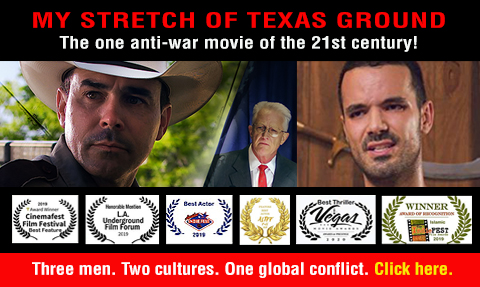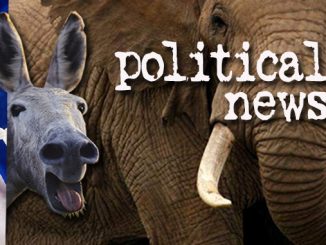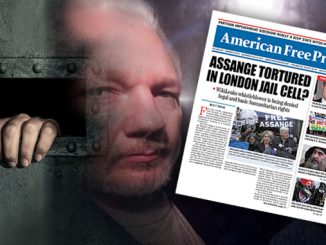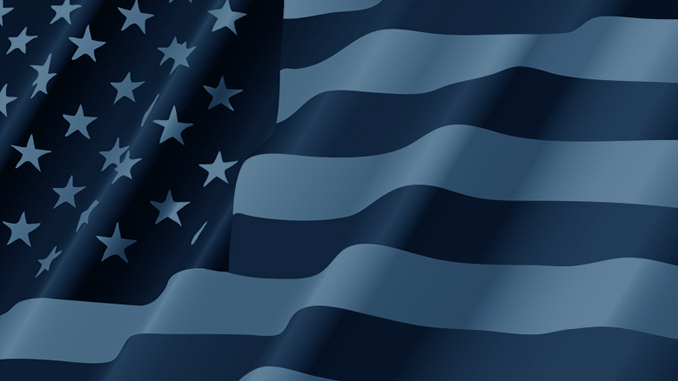
Press Freedoms Hang in the Balance in London.
By S.T. Patrick
As America’s leading journalists continue to bicker self-righteously over the timing of Bob Woodward’s publicly released tapes made with President Trump in preparation for a new book, freedom of the press continues to wilt away in a courtroom in London where WikiLeaks founder Julian Assange fights extradition to the United States.
Assange, a 48-year-old Australian, is fighting extradition to a country where—if he should lose a trial—he faces up to 175 years in prison for leaking classified U.S. intelligence documents and videotapes. Assange and his team of attorneys have charged that his global prosecution has been a direct assault on press freedoms and whistleblowers. He once faced rape charges in Sweden, but those were dropped due to a clear lack of evidence. Since Ecuador’s embassy in England rescinded his political asylum in 2019, Assange has been held in Belmarsh Prison outside of London. The extradition trial was originally scheduled for the spring of 2020 but was pushed back to September due to the coronavirus pandemic.
Assange was technically jailed in England for violating the Bail Act, but his imprisonment has transparently been a political one. While jailed, the judge has refused to release him for coronavirus-related fears, he has been kept in solitary isolation for most of his incarceration, and there have been multiple instances, during the rare visits allowed, when advocates and attorneys who have met with Assange have feared that his health was deteriorating at such a rapid pace that he could die in prison. Yet, that is exactly where he stayed, primarily for exposing U.S. military and government war crimes.
The extradition trial has to date been a show trial that strongly resembles a legal circus. The defense’s first witness was Professor Mark Feldstein of the University of Maryland, who attempted to appear via video link from the United States. Of course, Feldstein was beset by technical glitches and his first words were “I’m having a hard time hearing you.” Feldstein, the author of Poisoning the Press: Richard Nixon, Jack Anderson, and the Rise of Washington’s Scandal Culture, is an expert in the practices and ethics of investigative journalism. He argued that leaks are daily occurrences in the American media and that most leaks are actually perpetrated by government officials. He strongly argues that the reason they don’t get punished with legal action is because it would severely threaten the First Amendment. It was at this point that Feldstein’s link to the courtroom died. Author Noam Chomsky is on the list of potential witnesses for Assange. The American linguist will discuss the political motivations behind the Assange extradition.
 The most accurate descriptions of the trial thus far have called it “Kafkaesque,” “a kangaroo court,” or a “Stalinist show trial.”
The most accurate descriptions of the trial thus far have called it “Kafkaesque,” “a kangaroo court,” or a “Stalinist show trial.”
At one point on the first day, there was even confusion as to which charges were active. Assange’s attorneys seemed confused, and the judge continued to hear arguments from the prosecution over the “expertise” of Assange witnesses.
At the end of the first day, exiled whistleblower Edward Snowden tweeted, “The judge permits the charges to be changed so frequently the defense doesn’t even know what they are, the most basic demands are denied, no one can hear what the defendant says—it’s a farce.”
The second day saw the judge berate and threaten Assange when the defendant said, “This is nonsense” aloud in court. At one point, there was a debate regarding whether or not the Barack Obama administration decided to prosecute Assange. They never filed charges, so the answer seems abundantly clear, yet the prosecution kept trying to push the idea that an American administration had not decided to not prosecute Assange. The prosecution had also given defense witnesses 24 hours to peruse 350-plus-page bundles of information, only to act shocked and appalled when the witness was not fully prepared in court.
Amidst all this there existed coronavirus concerns, tests, the public announcing of results, and multiple postponements. The Assange trial continues as of the writing of this article, but the major news networks have covered little other than Assange being scolded in court.
Some of the finest independent journalists and commentators today have been live-tweeting about the court proceedings as they have progressed. Glenn Greenwald of “The Intercept” wrote, “The greatest threat to press freedom since 2016—the ongoing attempt by the DOJ to extradite Assange in connection with publishing documents—is underway in the UK, and U.S. journalists who spent four years flamboyantly depicting themselves as free press warriors are largely silent.”
Edward Curtin, the author of Seeking Truth in a Country of Lies, wrote, “Imagine this: Assange was Russian, and that he released information about Russian war crimes, political corruption etc. and was then tortured and jailed. Who in the U.S., liberal or conservative, would possibly believe the Russian government’s accusations that he was a criminal?”
In all of this, Assange has been given sparse opportunities to meet with his own legal team. The judge continually has acted like a favor was being done to allow Assange to meet with his team for an hour during the trial. Assange’s isolation has been part of the psychological torture that he has endured for the past year.
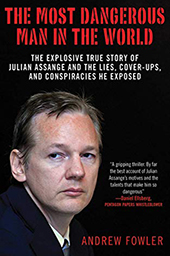
Just in case there was a possibility that this case couldn’t get any more carnival-like, here come the dancing elephants. There are pro-Assange followers of QAnon who actually want Assange to lose the trial. The convoluted theory is that Assange will then be extradited to the U.S. where Trump can pardon him and forever set free the journalistic freedoms that have plagued the scribes since George Washington. If that is true, the next logical question is, “What happens if Trump loses on November 3?” The answer, the dream of the fairies: “He won’t.” This is where we are in 2020 as press freedom is challenged by two countries that are supposed to be forces for freedom in the world.
Woodward’s timing will be debated as part of “Issues in Journalism” courses in America’s leading journalism schools for decades to come, as the fate of Assange lingers, paling by comparison to Woodward in the attention the WikiLeaks founder is receiving, yet more consequential to the fate of journalism as a watchdog of governmental malfeasance, to the future of citizen reporting, and to the very definition of journalism as the fifth estate. Freedom of press in the United States now hangs in the balance, waiting to see if the bridge of human rights that London and Washington, D.C. have long championed will indeed fall down.
S.T. Patrick holds degrees in both journalism and social studies education. He spent 10 years as an educator and now hosts the “Midnight Writer News Show.” His email is [email protected]. He is also an occasional contributor to TBR history magazine and the current managing editor of Deep Truth Journal (DTJ), a new conspiracy-focused publication available from the AFP Online Store.


